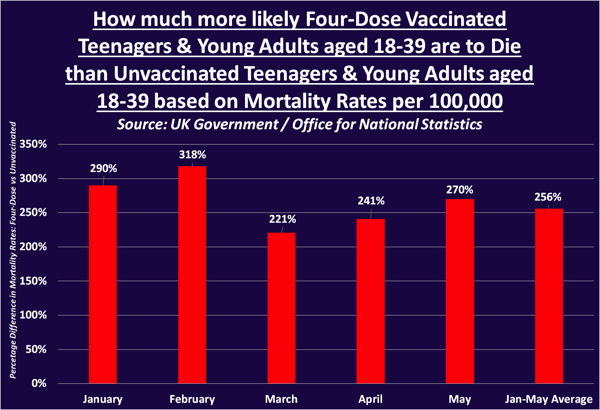Involuntary Manslaughter: YES
by Karl Denninger, Market Ticker:
 Consider this situation.
Consider this situation.
Someone who is basically homebound. They do not drive and they’re in poor enough physical condition that they’re unable, or unwilling, to walk the mile or mile and a half to a store. Someone else in the household thus brings basically everything into the residence that is consumed.
Said person is a raging alcoholic and/or drug abuser — indeed the reason they’re homebound is that their liver looks like a walnut, they have congestive heart failure and more.
They will and do consume their financial resources at a voracious rate to continue said habit even to the exclusion of being able to pay for food, legitimate medication, the power or water bill, but there’s a problem because they can’t magically make said drugs or booze appear in the place where they live, and thus where they consume them.
Someone has to physically buy and transport them, and in some cases supply the money to do so.
Now in the context of illegal drugs there have been cases where such persons have been charged with delivery (dealing), even though money didn’t change hands directly to them. In many states “delivery” of a controlled substance doesn’t require compensation to change hands in order the crime to be committed. I find all sorts of fault with that sort of charge in the first place on libertarian grounds since it is my considered opinion that “prohibited” or “controlled” drugs through law never works as intended and instead empowers criminal activity by dramatically raising the profit margin in such transactions. But that’s an argument for another day.
No, I want to look at where prosecutors have in some cases and ought to in all cases look in terms of liability: Criminal charges for involuntary manslaughter.
Involuntary manslaughter is defined as killing another person unlawfully but unintentionally.
The unlawful part can be anywhere from through negligence (civilly unlawful) through low-level felonies (e.g. DUI.)
The elements of the offense require (1) someone dies as a direct or indirect result of the person’s actions, (2) the act that led to the death was inherently dangerous or taken with reckless disregard and (3) the person who committed the act knew what they were doing was a threat to the life of another person.
Intentionally bringing drugs and/or booze into the household of a person who is a known, serious drug abuser and by trivial, casual observation of their physical condition it is clear they are medically unstable with full intention and knowledge that they will consume them in extreme quantity, especially when said delivery occurs on a repetitive, indeed daily or nearly-daily basis, damn well meets that set of tests.
A person who drives drunk doesn’t intend to kill someone. But they know their actions are dangerous and a threat to other people and they do so with reckless disregard. If someone is hit and killed then the third requirement is met.
Likewise someone who brings booze or drugs, especially if that booze or drugs are paid for by the person to whom they are given and then consumed, or through an act where the funds to buy them are acquired through deceit or fraud has quite-clearly taken the action with reckless disregard and the person so-furnishing knows damn well that the act threatens the life of the person to whom the substances are then given or made accessible.
An utterly huge percentage of people who manage to kill themselves through drug or alcohol abuse find themselves in a position where they’re physically unable to source their own drugs or booze long before the fatal incident occurs. In most cases we are not talking days or weeks but rather months or years — even decades — of advance knowledge and warning. But for the willing actions of others who in many if not nearly all cases are damn well aware of the severely compromised medical state of the abuser to continue to obtain a supply of said substances to abuse, whether legal or not, said person would not die as you can’t drink liquor or abuse drugs you do not physically possess.
Loading...



